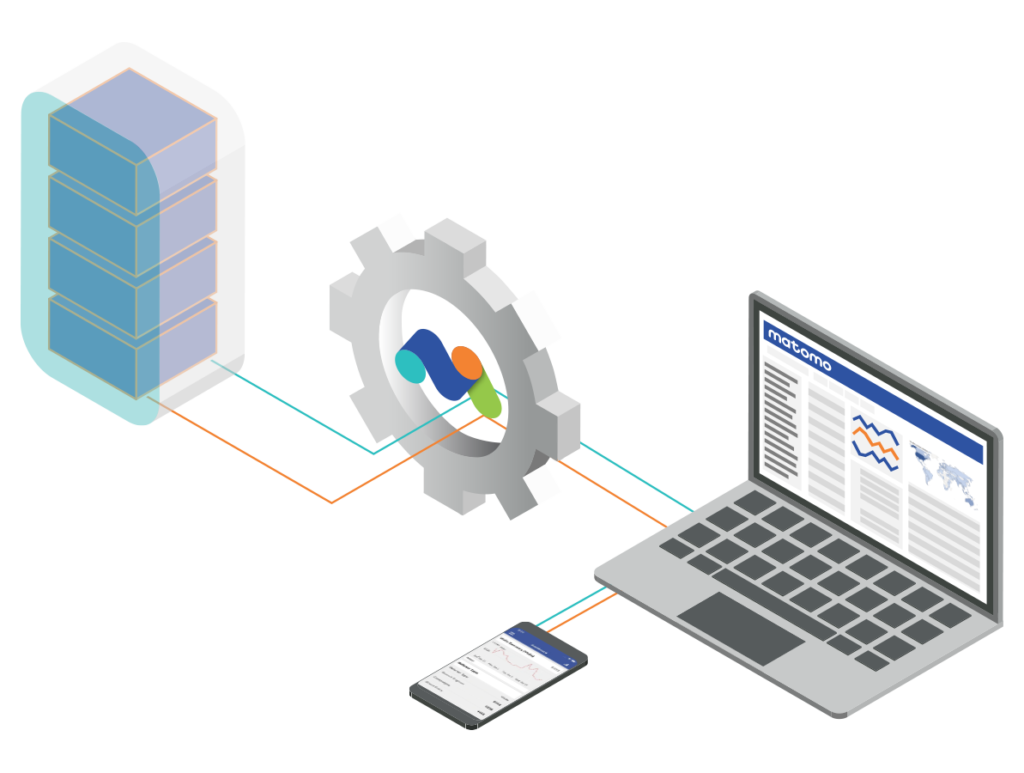
Matomo APIs for Data Export and Analysis - matomoexpert

Apr
Matomo APIs for Data Export and Analysis
Matomo APIs are highly effective and useful for data export and analysis. With the assistance of Matomo APIs, it has become very easy for users to transfer their analytics data as and when it is required for them. If you want to migrate to another Matomo Instance or back up your data, Matomo APIs are here for you to make it in quick steps. With the help of these APIs, analysts can collect data from Matomo and programmatically access and manipulate it. In the world of web analytics, it has become inevitable to export data from one platform and import it on another for more flexibility in managing and storing analytic data. Hence, Matomo APIs are available for web data analysts for data export and analysis.

1 – Understanding Matomo APIs:
Matomo APIs are the most effective tools that analysts use for communicating between software applications. Applications can extract, exchange, manipulate, and analyze data information by using APIs provided data formats. Matomo APIs are accessible through HTTP requests and you can get data in various formats like JSON, XML, or CSV. The most popular Matomo APIs include Reporting API, Management API, Tracking API, and Tag Manager API. Let’s discuss these Matomo key APIs:

2 – Reporting API:
The reporting API is the most effective tool for retrieving analytics data from Matomo. With reporting API a user can extract detailed reports and manage varied metrics like page views, Goals Tracking, visits, Events, etc. With this API, you can create, update, and delete aspects like websites, users, email reports, etc. Your data can be exported in the formats like CSV, JSON, XML, RSS, and HTML. You can take advantage of Reporting API by generating custom analytics dashboards and reports as per the requirements of your business. So, Reporting APIs can help analysts easily get data and analyze it for better business development.
Available Endpoints and Parameters:
Using Matomo HTTP API endpoint like matomo.php, you can achieve Reporting API. You need to specify the module, method, or any crucial parameters for sending a request. Below are the most common Reporting API parameters:
- Module – The title of the API that you want to call for example MyAPI, VisitsSummary, etc.
- Method – The name of the API method such as API.GetVisists
- idSite – The ID of your website from where you want to collect Data.
- Date – You can then, specify the date range for which you want to retrieve data
- Period – The period can be a day, week, month or year
- Format – You can set the format in which you want to get data like CSV, PDF, XML, JSON, or original
- Segment – A unique segment for data filtering purposes like referrerName==Firefox, country==PAK, etc.
Possible Uses:
Reporting API can be used for monitoring website traffic, user engagement, and Successful Conversions with Goals for reaching out to the website performance. You can create custom reports and visualize them through custom dashboards using Reporting API. You can integrate Matomo with other systems like CMS for better analysis. Set automated alerts with Reporting API. You can further build custom plugins and extensions with this API.
3 – Tracking API:

Tracking API is useful for tracking and sending data to the Matomo server for a thorough analysis of websites and applications. The developers can make HTTP requests or embed JavaScript code for tracking and Analyzing User Behavior, interactions, and actions such as clicks, page views, event tracking, goals, and Visits by adding methods like trackEvent, trackGoal, and setCustomVariable. These metrics help optimize and analyze User Experience and Website Performance. You can use both GET and POST methods for data tracking with tracking API.
4 – Live API:
Live API provides real-time access to user data on a website or application. You can monitor current visitor sessions with Live API. With Live API you can retrieve all user data or information like visits, pages, downloads, custom dimensions, referral sources, visitor location, and browsing behavior. Analysts can export raw data with Live.getLastVisitsDetails API method for precise optimization and analysis. Besides, Live API is useful for in-depth reporting of up-to-date user data and site performance.

Besides these APIs, Matomo provides a variety of other APIs that enlarge its functionalities and integration powers. You can manage the website, users, permissions, etc with Management API. With the usage of Tag Manager API, you can deploy and manage tracking tags. You can use Widgets API for easy data visualization by embedding analytics widgets into custom dashboards. With these APIs, you can export and Create Custom Reports, manage user permissions, integrate third-party cookies, and much more.
5 – Data Export Options provided by Matomo:
Matomo provides advanced APIs for exporting data. These APIs are available in different formats like RESTful JSON and serialized PHP Matomo offers varied formats for data export like CSV, XML, JSON, etc. These formats are essential for custom reports and sharing those reports with stakeholders who don’t have direct access to Matomo Instance. You can then, export reports directly via email with Matomo APIs.
6 – Security and Authentication Aspects:
- Matomo offers strong implementation of authentication aspects like OAuth 2.0 or API keys
- With Robust hashing algorithms, all sensitive information can be stored
- For protection from CSRF exploits implement nonce checks during operations that modify state.
7 – Rate Limiting and Control to Manage API Requests:
There is no default rate limiting and control to manage API requests in Matomo but you can set a limit for clients on how many requests they can make within your defined time frame. You can control requests by limit to prevent abuse and system overload.
8 – Error Handling and Troubleshooting Techniques:
- While making API requests, define clear error codes
- Logging API request assist in identifying errors for analysis and monitoring
- Incorporate retry strategies for temporary errors
Matomo APIs are a valuable resource for data export and analysis for all website owners and businesses for exporting data as per their requirements with the desired format for better analysis and decision-making. Hence, Matomo APIs comply with GDPR for data export and analysis. Follow up on MatomoExpert blogs for further understanding of Strategies for Data Tracking in Matomo.
MatomoExpert © 2023 All Rights Reserved